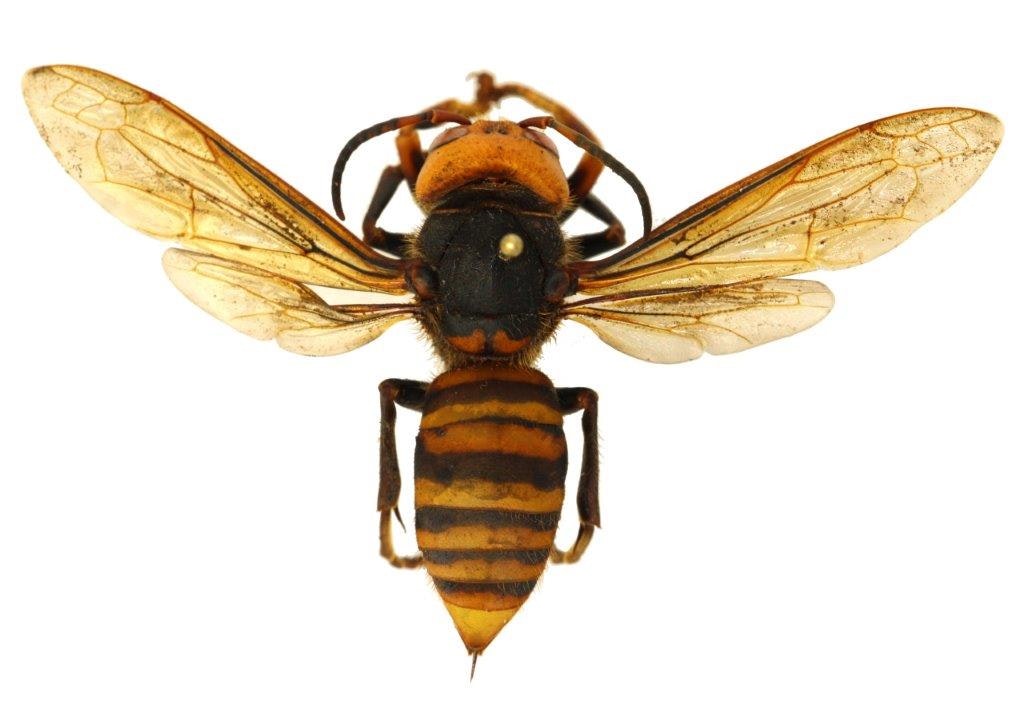Cicada Killer Wasp
Commonly mistaken for the Northern Giant hornet, do not be fooled, this is not a murder hornet. Pacific cicada killer (Sphecius convallis) is the largest wasp in California. Body length is about 1.5 in. long. Though they can sting humans, it is very rare and not generally a concern. The District does not have a wasp/hornet program.


The cicada killer wasp has often been misidentified by Coachella Valley residents as the Northern Giant Hornet (Vespa mandarinia), commonly referred to as the murder hornet. Northern Giant "murder hornets" have not been identified in California at this time.
Pacific cicada killer (Sphecius convallis) is the largest wasp in California. Body length is about 1.5 inches long.
Why are cicada killers so abundant in some areas?
These solitary wasps choose sites with specific characteristics: well-drained, light-textured soils in full sunlight that are near trees harboring cicadas.
Are cicada killers dangerous?
Females have significant stingers which they plunge into cicadas to inject venom that paralyzes them. Without doubt, their stings are painful but rare. However, they are not aggressive and do not have nest-guarding instinct of honey bees and hornets. You can walk through areas where they are active without attracting attention.


More details can be found on the University of Arizona's website.
Stings from any insect, especially if you have been stung many times or you have a history of allergy to insect stings, can pose a risk to your health. Never approach or disturb bee or wasp nests, and avoid swatting or handling foraging wasps or bees. More information on insect stings: http://ipm.ucanr.edu/PMG/PESTNOTES/pn7449.html
If you think they have seen an Asian giant hornet, you should contact the local Department of Agriculture to report the sighting. In California, invasive pests can be reported at https://www.cdfa.ca.gov/plant/reportapest/ or by calling 800-491-1899.
